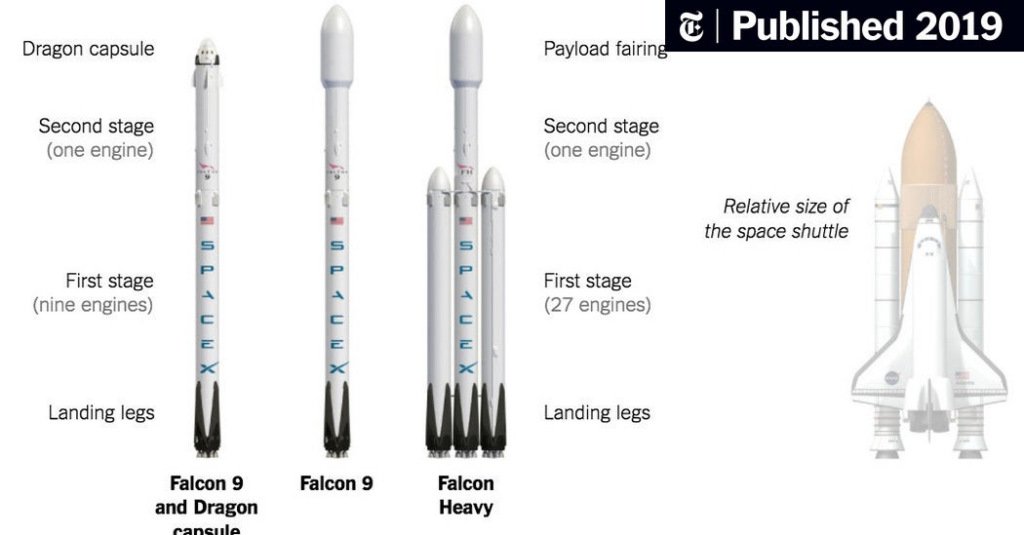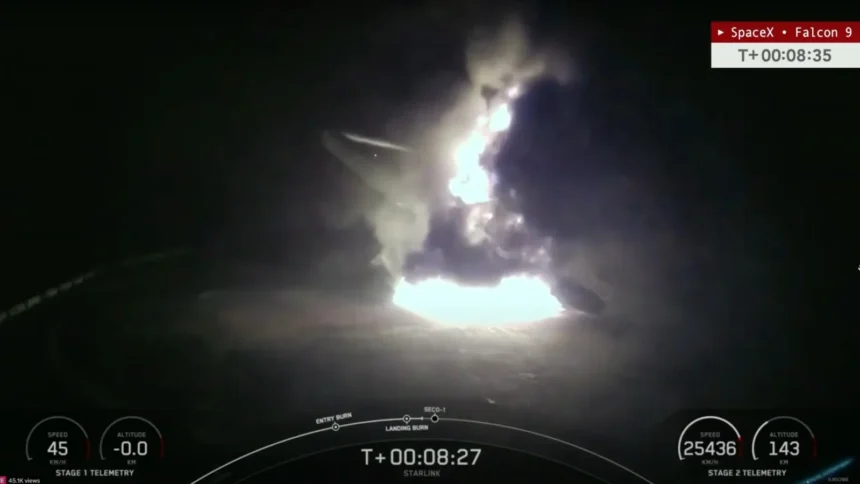SpaceX faces a new setback with its Falcon 9 rockets. The Federal Aviation Administration (FAA) has grounded all Falcon 9 flights following a fiery crash during a recent landing attempt. The decision comes after a Falcon 9 booster tipped over and burst into flames while trying to land on a drone ship in the ocean, following a successful launch from Cape Canaveral Space Force Station in Florida.
What Happened & Why It Matters
Today (28 August), SpaceX’s Falcon 9 rocket launched successfully, carrying 21 Starlink satellites into orbit. The mission appeared to be proceeding smoothly until the rocket’s first-stage booster, which was set to land on a drone ship at sea, failed to stick the landing. Although the booster initially touched down upright, it soon began to tip over, catching fire in the process.
The FAA quickly responded to the incident. In a statement, the agency acknowledged “an anomaly” during the landing phase of the Falcon 9, prompting it to suspend all further launches involving the rocket while an investigation is conducted. The FAA is focused on ensuring such a mishap doesn’t recur, even though no injuries or damage to public property were reported.
This isn’t the first time SpaceX has faced trouble with its Falcon 9. Just over a month ago, another Falcon 9 encountered a problem when its second stage failed to properly deploy a batch of Starlink satellites due to a liquid oxygen leak. That earlier incident led to a two-week grounding of Falcon 9 flights while SpaceX resolved the issue.
Crash Implications
The grounding of Falcon 9 flights affects not just SpaceX but also other missions relying on this rocket. For example, the Polaris Dawn mission, which aims to send four civilian astronauts into space, could see delays. Originally scheduled for a Tuesday launch, the mission has already been postponed due to bad weather in Florida, and the FAA’s grounding decision could push it back even further.
Despite these setbacks, the Falcon 9 rocket has a solid track record, having completed over 360 missions successfully. SpaceX CEO Elon Musk took to social media to assure the public that the company will use this incident to enhance the rocket’s reliability. He expressed the goal of reducing the landing failure rate to less than 1 in a million.

TF Summary: What’s Next?
The FAA’s investigation will focus on understanding the technical failures that led to the crash and determining what safety measures SpaceX needs to implement before Falcon 9 can fly again. In the meantime, SpaceX must postpone its scheduled launches, including potentially high-profile missions like Polaris Dawn. The company remains committed to refining its rocket technology, aiming for even greater safety and reliability in future flights.
— Text-to-Speech (TTS) provided by gspeech


